Covid: Wales set for more normal Christmas, Drakeford says
- Published
- comments
Care home visits will be easier, says first minister
Christmas this year is likely to be more normal than in 2020, First Minister Mark Drakeford has said.
He said if nothing unexpected happens Wales can look forward to a holiday season "much more like the ones we are used to".
The Welsh government said that all businesses are likely to be able to stay open this winter.
But it has drawn up a "Covid Urgent" plan, external if a new variant risks overwhelming the NHS.
In a statement setting out Wales' autumn and winter plan, external, the government said such a scenario could be the emergence of a new, fast-spreading variant or if vaccine immunity levels fall, causing a rise in pandemic pressures.
But it is more likely the country will slowly move out of the pandemic, where coronavirus becomes a seasonal illness, and that businesses can stay open.
Mr Drakeford said Wales remains at alert level zero, with no changes likely in the next three weeks beyond those already announced.
At a briefing on Friday he also said it would now be easier to visit a loved one in a care home.
It comes as Wales' case rates dip below 500 per 100,000 for the first time since mid-September.
Mr Drakeford said in the most probable scenario "we ought to be able to get through the autumn and the winter with restrictions at the sort of level we have at the moment.
"That would be very different to last Christmas, far more like the sort of Christmasses we were used to."
"If nothing unexpected arises, and we've got to plan for the unexpected as well, then we can look forward to a Christmas much more like the ones that we are used to."
Wales went into lockdown days before Christmas last year, curtailing plans to allow more mixing over the period.
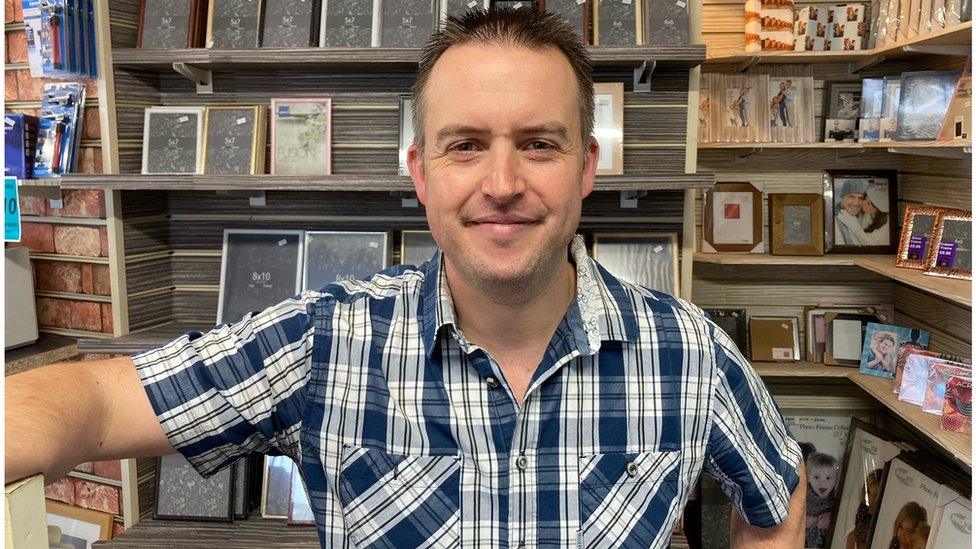
Business owner Neil Collier said the news was "reassuring"
Businesses said the news they would probably not be facing another winter lockdown was "reassuring".
Neil Collier, owner of Colliers Photo Imaging in Uplands, Swansea, said he faced "quite a hit" last Christmas with "panicked customers wondering if they were going to get their orders".
"I think it's more security for business trade going into the winter months which is potentially our busiest period," he added.
Last winter, Nicki Collier, who manages Bluebell Coffee and Kitchen in Tycoch, also Swansea, faced having to cancel bookings and process refunds.
"It's really reassuring to hear some good news finally. Shutting overnight last year was a really big shock," she said.
"Fingers crossed now this is good news for this Christmas."
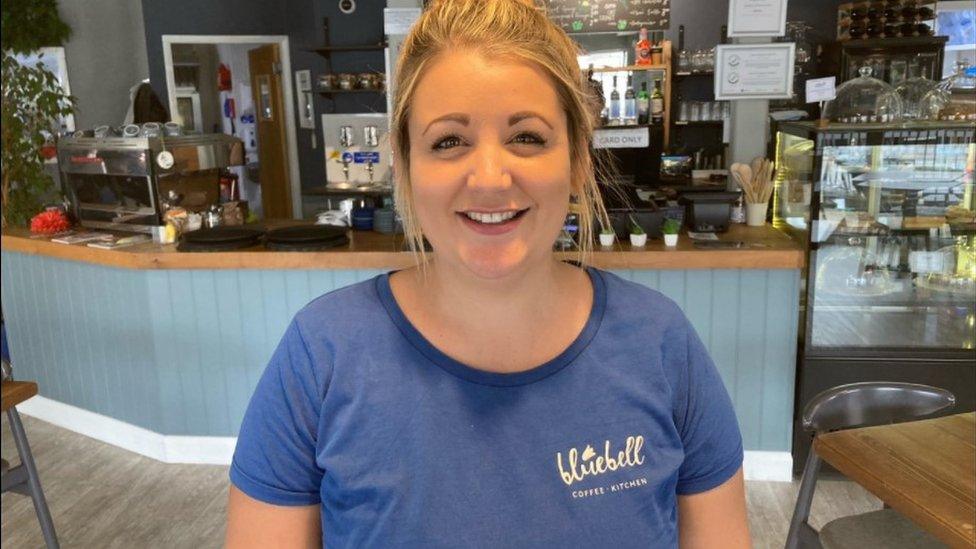
Nikki Collier is optimistic about the months ahead
Covid 'not the only concern this winter'
Dr Richard Stanton, a virologist at Cardiff University, said the Welsh government should stick with current restrictions to "keep a lid on transmission rates" ahead of the winter.
He said Covid-19 was now not the only concern, with other respiratory viruses such as flu and respiratory syncytial virus (RSV) - a common winter bug that can cause lung problems - likely to spread too.
"All those things will put pressure on the NHS and could result in further hospitalisations," he added.p
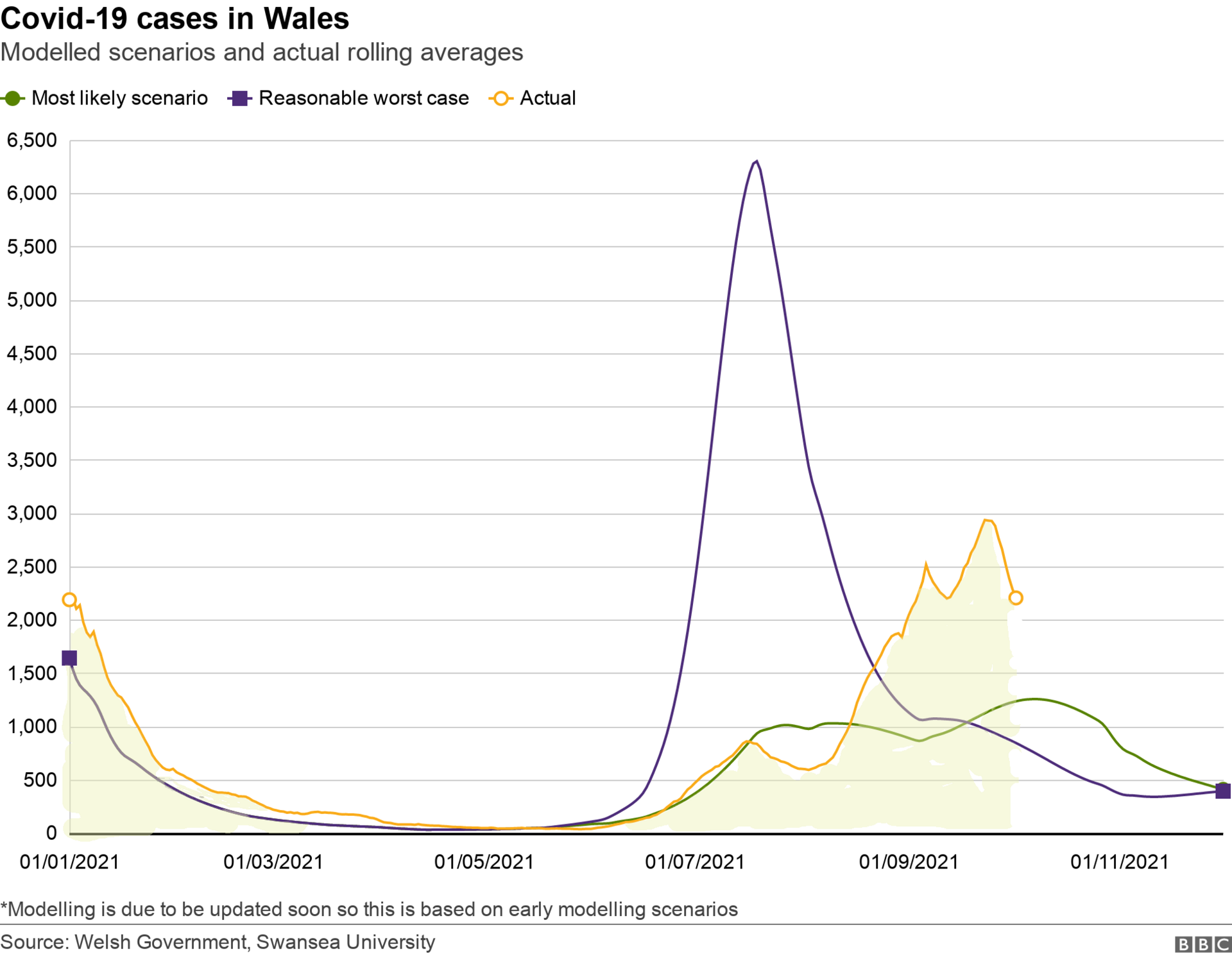

Mr Drakeford confirmed there would be no changes to the current regulations for the next three weeks, beyond those already announced.
Rules around care home visits will be reduced, however. Mr Drakeford said providers can now allow visitors to take lateral flow tests at home and will no longer have to socially distance in a resident's room or in a designated visiting room.
Restrictions around gifts, including food and drink, will also be eased.
The first minister set out two planning scenarios for the pandemic over the winter., external
In the first, called Covid Stable, external, Wales remains at alert level zero through the autumn and winter, with all businesses able to open.
The second, Covid Urgent, external, is designed to deal with any sudden changes to the situation.
If that happens previously drawn up "alert levels" - including lockdown at level four - could be used as an option of last resort.
"While we do not think measures under a Covid Urgent scenario will be necessary this autumn or winter, we cannot completely rule them out," the plan added.
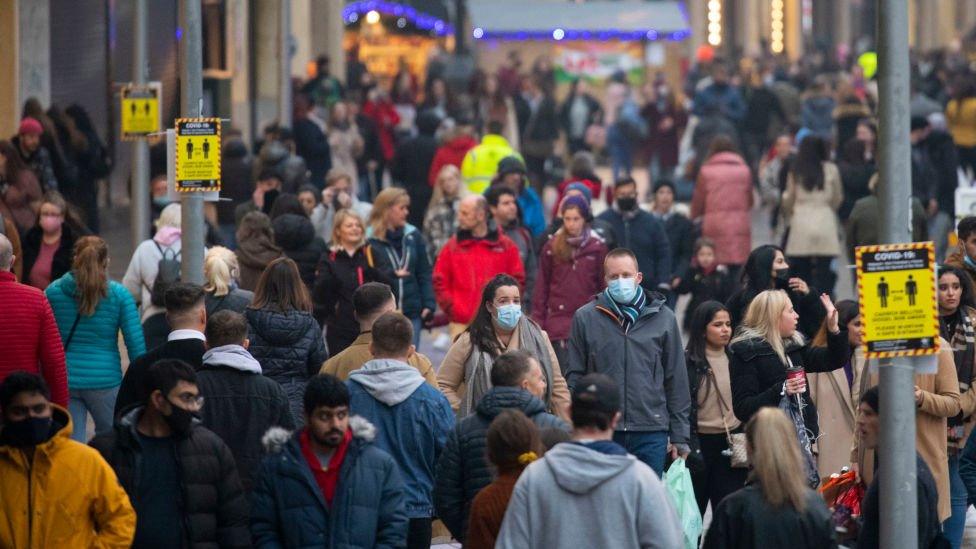
All businesses are likely to be able to stay open this winter, according to the Welsh government
Mr Drakeford told journalists that, should demand for PCR tests outstrip the ability to provide them during the winter, then some less-vulnerable groups would be offered lateral flow strips in the first instance.
He told journalists there was no plan to charge for PCR tests, but said after the winter Wales will begin to move into an era where "mass testing will play a less important part in the way we manage the virus".
"We will be reserving the tests for the purposes for which they are most important", he added.
'Challenging winter ahead'
Prior to the press conference the first minister said Wales was "facing a challenging winter ahead - coronavirus hasn't gone away and flu is forecast to return this winter."
"Vaccination is the best defence we have against coronavirus - the more people who are fully vaccinated, the better our chances of controlling the spread of this awful virus."
He encouraged everyone who was eligible "to have their flu jab this year".
He said he believed Wales was now past the peak of the third wave, following a decline in cases over the last few days.
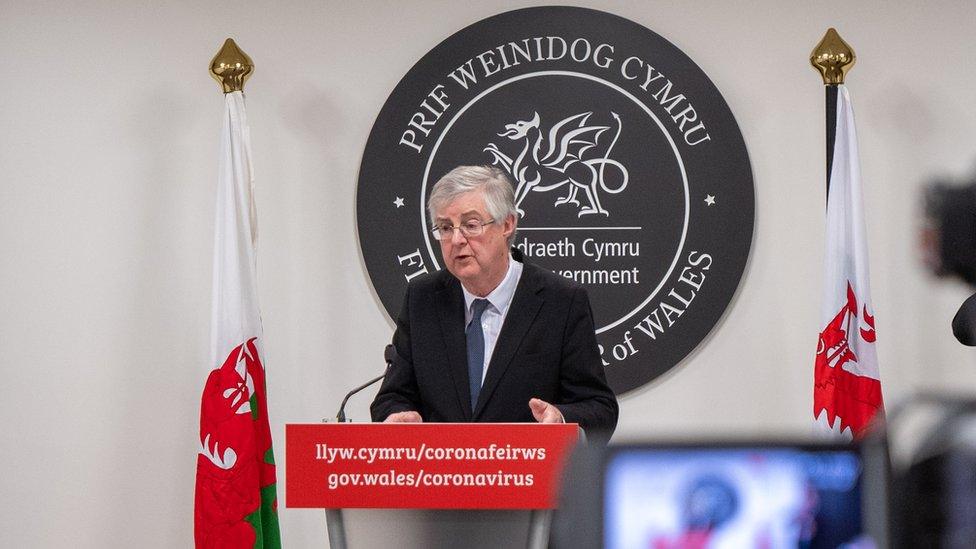
Mr Drakeford asked everyone to continue to wash hands and meet outdoors to reduce the transmission of coronavirus
Covid passes
In other measures to keep Wales safe, Covid passes in nightclubs and large events will be introduced from Monday, following a narrow victory for the Welsh government in a knife-edge Senedd vote this week.
The public will be expected to show evidence of being fully vaccinated or having a recent negative Covid test.
Mr Drakeford told the BBC's Dros Frecwast programme event organisers were responsible for checking people were carrying the correct Covid passes through a spot check system, as fines were being introduced for fake ones from Monday.
"When there are lots and lots of people trying to go in, for example, there will be no need to check each one," he said.
At the briefing, he said he expected the introduction of Covid passes would be "relatively smooth," but admitted it would not be without "teething trouble".
"I think that the system is easy to use," he added.
Professor of epidemiology and biostatistics Mike Gravenor, of Swansea University Medical School, has been part of the team looking at the modelling of Covid-19 in Wales.
He told BBC Radio Wales Breakfast: "We're still under a situation of uncertainty. A new variant is one factor and our understanding of how long immunity lasts for, in natural immunity and in vaccinated individuals."

Analysis by Steve Duffy, BBC Wales data journalist
All the indicators are pointing to an improving position with regards to Covid - case rates have been falling for the last nine days.
The spike we saw in recent weeks was driven by high numbers of under-19s, especially secondary school-age children, testing positive, ahead of vaccinations being available for this age group.
The character of this third wave spike was also influenced by record numbers of lateral flow tests coming back positive, so young people were being found to have Covid, even if not displaying symptoms.
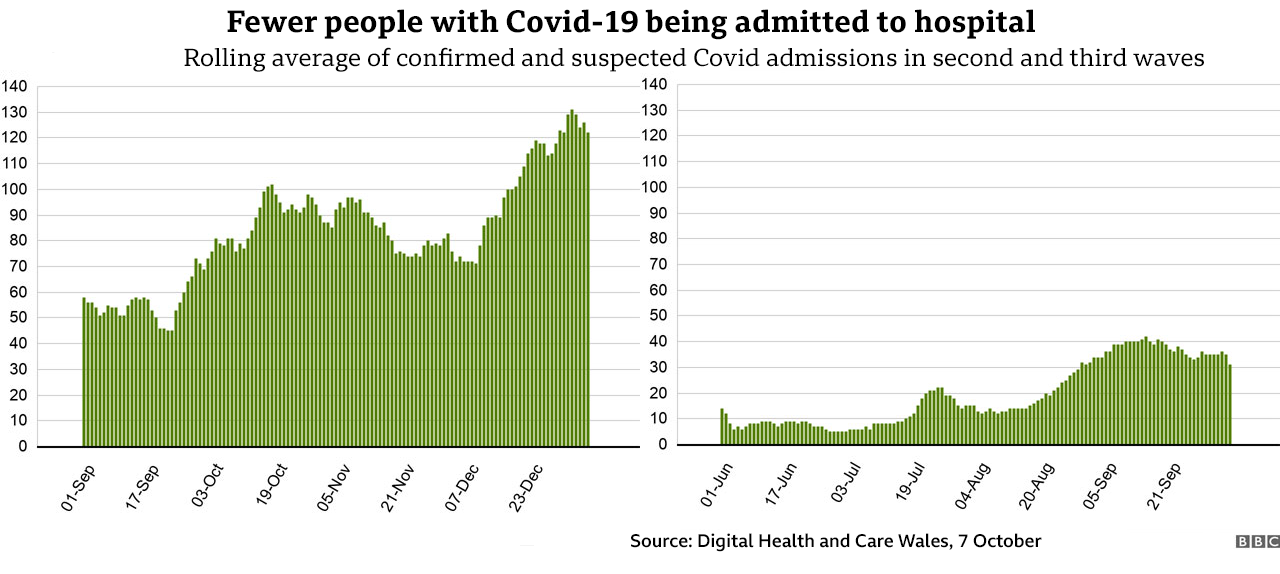

Because so many infections have involved young people, while many older and vulnerable people have been double-vaccinated, we have not seen anything like the Covid cases in hospital beds.
Admissions have been higher in recent weeks than some early modelling predicted as likely, but numbers of patients with Covid are coming down.
On Wednesday, there were 14% fewer Covid patients in hospital beds on average than two weeks ago.
We have been seeing similar numbers in critical care for more than a month and those in ICU with non-Covid conditions outnumber Covid patients by more than two to one.
But hospital managers will still be concerned that there are more than 420 Covid patients in beds across Wales and bed occupancy is at 90% in acute hospitals, with the winter to come.
Sadly, there are still people dying of Covid and figures from the ONS this week showed 88 deaths in Wales in the latest week. But numbers are down considerably on earlier waves - and after a spike in September, they are back within the range expected by scientists.

DEAR MRS CAMPBELL: A letter of celebration to Wales' first black headteacher
THE CASABLANCA: How a Cardiff nightclub changed our lives

- Published7 October 2021
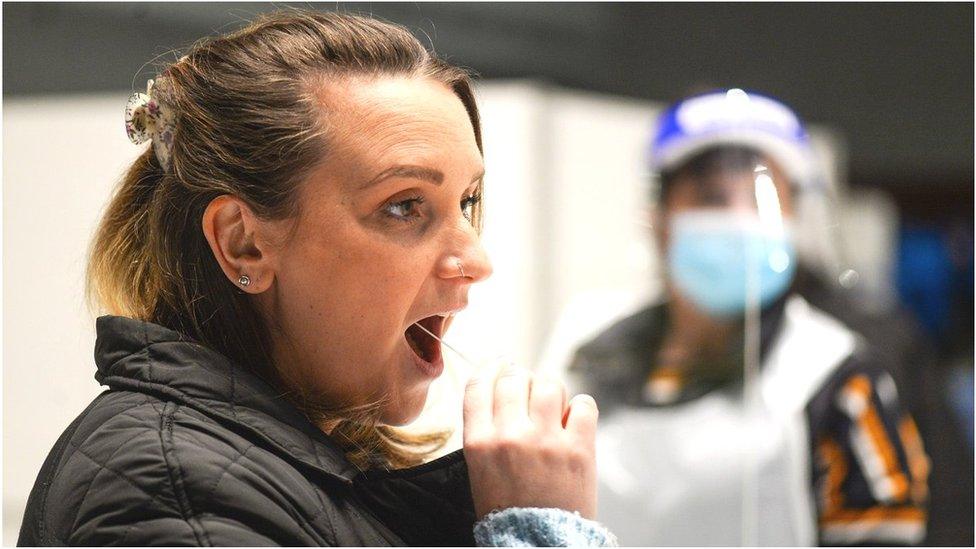
- Published15 November 2021

- Published6 October 2021
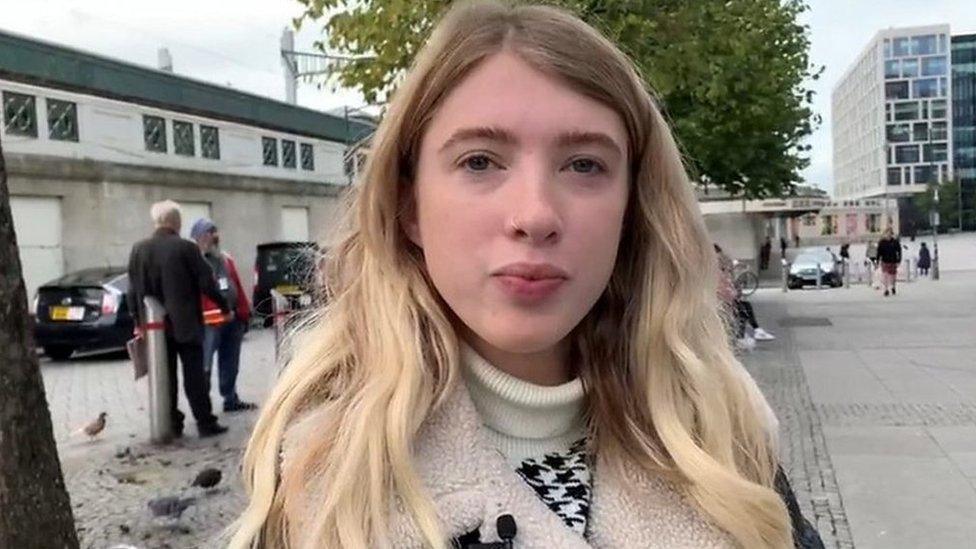
- Published28 May 2024

- Published4 October 2021
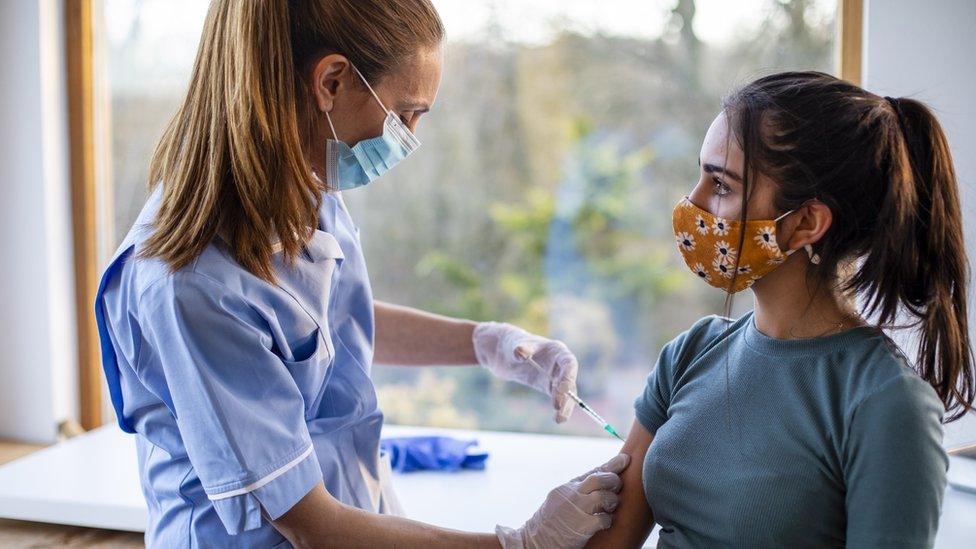
- Published7 August 2021
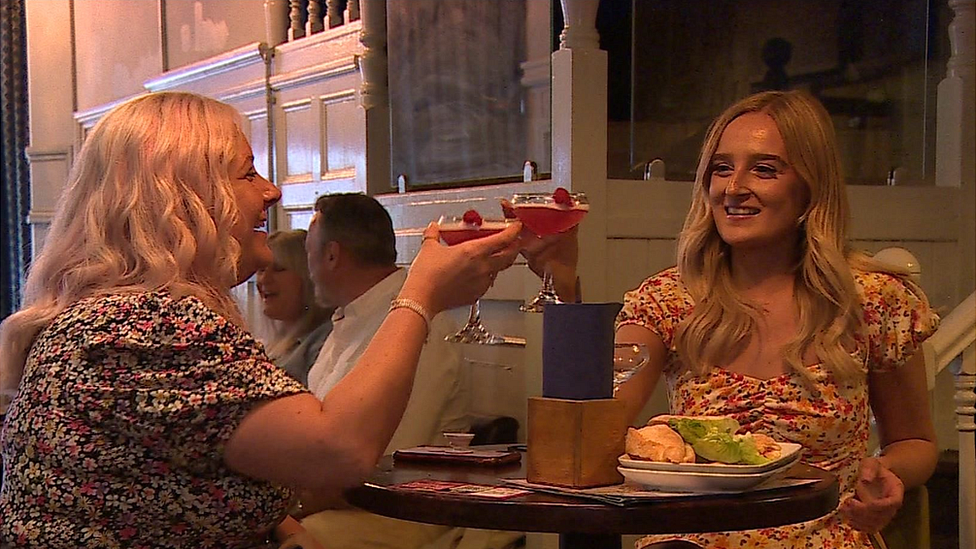
- Published6 August 2021
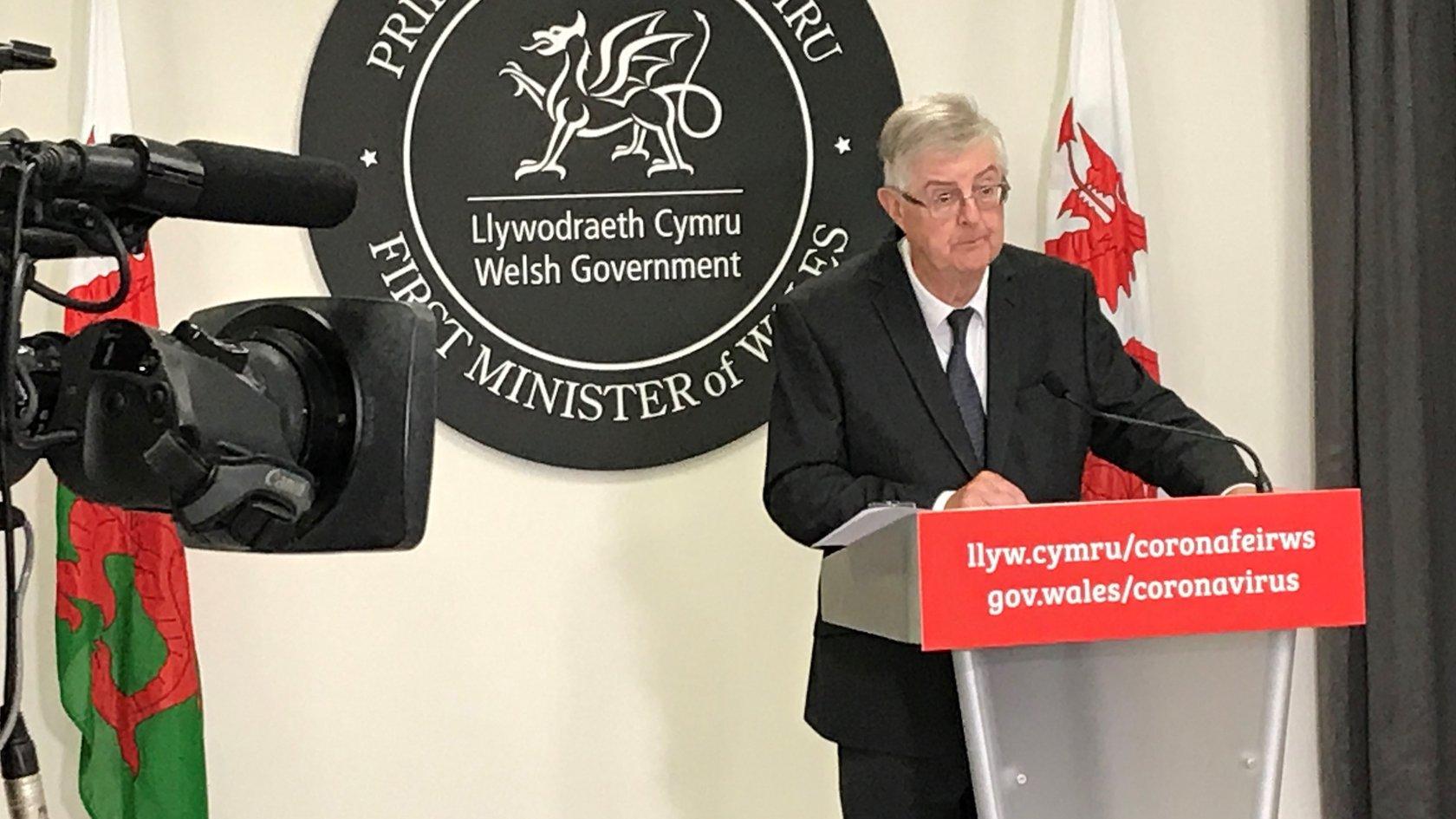
- Published27 May 2022
